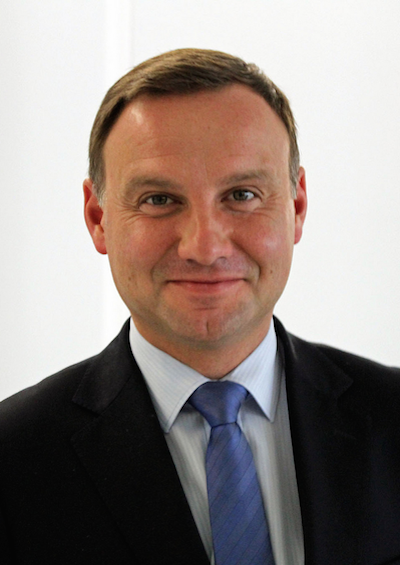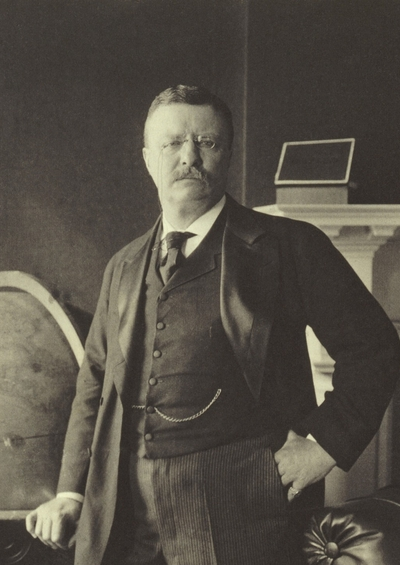Where Will Poland Go From Here?
The presidential election outcome was a surprise, given that the economy was doing quite well.
June 2, 2015

The success of Andrzej Duda, the rightwing candidate during the recent presidential election in Poland, could mark a substantial shift in the country’s political and economic landscape in the years to come.
Under the leadership of the (still) governing Civic Platform, the strong growth performance of the Polish economy translated into a widespread improvement of the economic and social situation of the population.
At the aggregate level, income inequality, measured in terms of the Gini coefficient, have continued to fall after 2008, when Civic Platform came into power.
Economic and social conditions improved at the regional level as well. Large cities across all Polish regions saw their GDP per capita increase, and unemployment rates decline.
Although growth benefited all Polish cities, this fact was obscured during the 2015 presidential campaign. It brought a shift in power, for now at least, in terms of a new president.
The relative unknown 43-year old lawyer Andrzej Duda managed to oust the incumbent, Bronislaw Komorowski. This surprising election outcome foreshadows a broader shift of power in the most populous EU member country in Central and Eastern Europe.
The election outcome is a surprise, given that the Polish economy was doing quite well, at least compared with the EU average. It underscores certain restlessness of the Polish electorate.
Urban-rural divide cashed in on
The President-elect managed to profit from this restlessness in his electoral campaign when he chose to focus on the persistence of inter-regional disparities between Poland’s urban and rural areas.
His party, the PiS, had always relied on voters in the Polish countryside. And while Komorowski managed to win a majority in the cities, Duda beat him in the rural areas.
The four pillars of Duda’s election pledge
The electoral campaign of the challenger was based on an “electoral agreement” with the voters. Duda’s central proposition is what he calls the construction of the “common Polish home.” In his view, that is based on pillars such as family, work, dialog and security.
Specifically, his “family pillar” included:
1. Promise of 500 zloty (€120 or $132) in child benefits as of the second child.
2. Cost-free kindergarten for every child.
3. Radical reform to the nation’s healthcare and early education.
4. Return to a pension entry age of 65 for men and 60 for women (from 67 years at present, following a pension reform).
The annual cost of the latter measure – assuming additionally that at least 50% of men and women reaching the pension entry age would remain in the labor market – has been estimated at about EUR 3.6 billion ($3.9 billion).
Duda’s “work pillar” includes support to investment, accompanied by a reduction of barriers to the ease of doing business. He further promises an increase in wages and support to exports, which is to be achieved through the maintenance of a favorable exchange rate of the Polish currency.
The “dialog pillar” foresees the establishment of a National Development Committee (with business and industry representatives, experts and scientists). Its main task is to make suggestions for the development of existing and the creation of new companies.
The final pillar of “security” should be built on a strong international political standing of Poland, in conjunction with a strong economy.
With regard to foreign policy, a “recalibration” of the relations with Germany would take place. Duda’s stated aim is to diminish Germany’s influence over Poland in EU policy issues such as climate change and relations with Russia.
Shift in foreign policy
At the same time, Duda wants tighter diplomatic collaboration with the United States. The move is seen as key to establishing a permanent NATO base on Polish territory. Finally, certain powers from Brussels to member states should be shifted back.
Other policy plans include:
1. Increasing the tax-free share for the lowest-paid workers from €730 to €1930 ($797 to $2108).
2. Forcing the conversion of Swiss Franc denominated mortgages into Polish zloty at historical rates.
The aim is to bail out a number of borrowers who saw their debt service rise considerably, due to the depreciation of zloty against the Swiss Franc since May 2008. This move would cost banks more than €9 billion.
As a member of the Poland’s Law and Justice party (PiS), a party with a nationalist orientation, one of Duda’s key aims is to protect more fiercely Polish entrepreneurship.
One of the proposals includes the introduction of additional taxes on large supermarket chains – a sector strongly dominated by foreign retailers.
Another proposal aims at the re-nationalization of the banking sector, where foreign players currently control two-thirds.
It remains to be seen whether and how the new President-elect is going to realize his promises. He must rely on the success of his party in the general election this autumn.
Budget strains to come?
Should the Law and Justice Party (PiS) indeed win power in the fall, and Jaroslaw Kaczynski become Prime Minister once again (he previously served in that post briefly, from mid-2006 to late 2007), the question of how to finance these promises will become pertinent.
Although any estimate would only be guesswork at the moment, implementation of the promises Duda made would heavily burden the government budget.
Poland’s past fiscal consolidation efforts, which were key to improving the country’s standing in Europe and in global markets, will likely be wiped out. In particular, public finances would be under pressure, as the nation’s debt ratio would rise towards critical boundary.
Moreover, Poland’s GDP growth would probably suffer, particularly if the pension-entry age was reduced, and wages and tax allowances were increased.
Perhaps most critically, instead of being perceived as a rising political power in Europe and a close ally of Germany, Poland could slip towards the periphery with little influence on EU policy.
Future of Poland at risk?
After years of remarkable economic prosperity and political stability in Poland, the future now seems uncertain.
The electoral results signal a radical political change in the years to come. Undoubtedly, the victory of the right wing, conservative candidate reflects the Polish electorate’s dissatisfaction with the current government.
That signals a further shift in power in the general election this autumn, away from the liberal and EU-friendly Civic Platform, towards the socially conservative and Eurosceptic Law and Justice Party.
If a new government implements the new President’s election pledge after the parliamentary elections in autumn, the years of economic progress and international political rise of the country could well be at risk.
